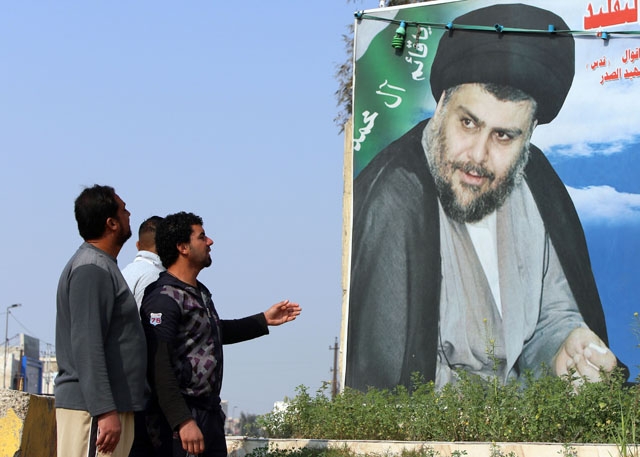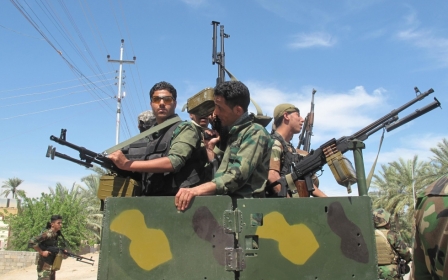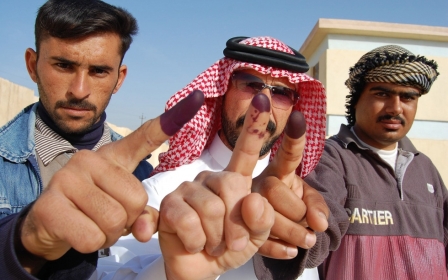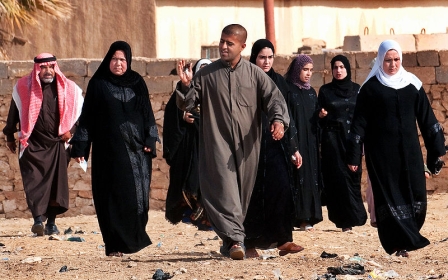Soaring expectations for Iraq's Sadrists after vote

For decades, Iraq's al-Sadr family has enjoyed much love and respect across large sections of Iraq's population. In a country where your family origin can help boost your social status, it was not surprising to see the star of powerful Shiite cleric Muqtada al-Sadr rise swiftly after he became involved in the political discourse following the 2003 US-led invasion of Iraq. After all, he was the son and son-in-law of two prominent scholars who represent a distinct school of Islamic thought in Najaf.
However, his involvement in politics has been met with various reactions both internationally and on a national level. In Western media, he was predominately known as a "firebrand anti-US cleric" for his vocal criticism of the presence of US troops in Iraq. Iraqis too were divided over him, with a mixture of lavish praise from some and harsh criticism from others. But regardless of what is thought of him, he has been attracting more supporters over the years and now his camp is anticipating more votes in the 2014 parliamentary elections.
In an exclusive interview, Hasan Al-Sadr, secretary general of Al-Shaheed al-Sadr International League - the official Sadrist representation in Europe - told Middle East Eye that the parliamentary bloc affiliated with Sadr, al-Ahrar, expects to garner 70 of out of the 328 seats on offer. That would be a significant jump from the 39 seats (out of 325) won in the 2010 elections. It is important to note that in both the 2006 and 2010 elections, Sadr's bloc played the role of kingmaker, effectively deciding who would form a government.
According to Hasan Al-Sadr, the movement's local government election results significantly increased in 2013 if compared to previous local polls in 2009, and he expects this trend to be reflected at a national level. He attributes the growing support to a number of factors.
"Supporters of Sayed [Muqtada] al-Sadr feel that he has not been corrupted by politics. They notice how he still lives in his father's house in Najaf, while many of his political peers have become extremely wealthy in a very short time. Eleven years on, he is still living modestly with minimum security," said Hasan al-Sadr.
New MEE newsletter: Jerusalem Dispatch
Sign up to get the latest insights and analysis on Israel-Palestine, alongside Turkey Unpacked and other MEE newsletters
"His supporters have also witnessed how some of his decisions were not very popular with everyone at first, but became a trend that others followed later. For example when he visited Sunni mosques, it wasn't looked at favourably in Shiite circles. His national unity rhetoric was not met with loud applause during times when sectarian speeches prevailed," he added, noting that this had cost him a number of supporters.
When asked why the Sadrist movement hasn't attracted more Sunni voters, Hasan Al-Sadr pointed to what many militants have been doing in the name of the al-Mahdi Army, which Sadr founded, but without his knowledge or blessings. And that is why in 2008 he froze its activities. He had also fired Shiite militia leader Qais al-Khazali, who was thought to be too close to Iran and less interested in the wellbeing of Iraq.
Hasan Al-Sadr stressed that his bloc had earned respect through learning from its mistakes and by having a policy of zero-tolerance towards internal blunders.
"In 2007, he [Muqtada] withdrew six ministers representing his camp from [Prime Minister Nuri al-Maliki's] cabinet because he was informed that they were not working professionally. His followers undergo stricter scrutiny and there is less for them to gain than their counterparts in other parties. The al-Ahrar headquarters is a simple rented house, despite the large political size of the bloc. Compare that to others who seal off areas completely for their offices."
If the Sadr camp does indeed secure the 70 seats in parliament, the question remains of who it will bring to power. In his resignation from politics statement, Sadr explicitly cites his dissatisfaction with the "dictatorial" policies of Maliki. So a third partnership with the current premier is highly unlikely.
"If we have 70 seats in parliament and the Islamic Supreme Council of Iraq, led by Ammar al-Hakim, wins 60 seats then we can form a coalition together," said Hasan Al-Sadr optimistically. "We are not asking people to vote for us so that we begin to do good for them; we are asking them to vote for our bloc so that we continue to serve them. They see what changes we made in the areas that we were in charge of," he added, pointing to what he said was the success of Housing Minister Mohamed al-Darraji and Maysan Governor Ali Dawai.
Recently, Muqtada al-Sadr called on Iraqis to vote in large numbers, urging his followers to let their female family members to take part in the elections. A failure to do so, he said, would be either backward or betraying Iraq. There is a sense among his supporters that this election is going to bring about a big change in favour of their bloc. With election results set to be declared in the coming days, we will soon find out if this optimism is deserved.
Middle East Eye delivers independent and unrivalled coverage and analysis of the Middle East, North Africa and beyond. To learn more about republishing this content and the associated fees, please fill out this form. More about MEE can be found here.




